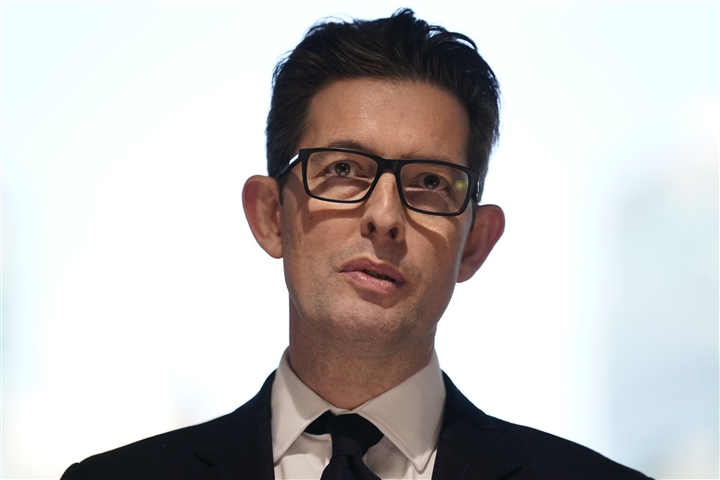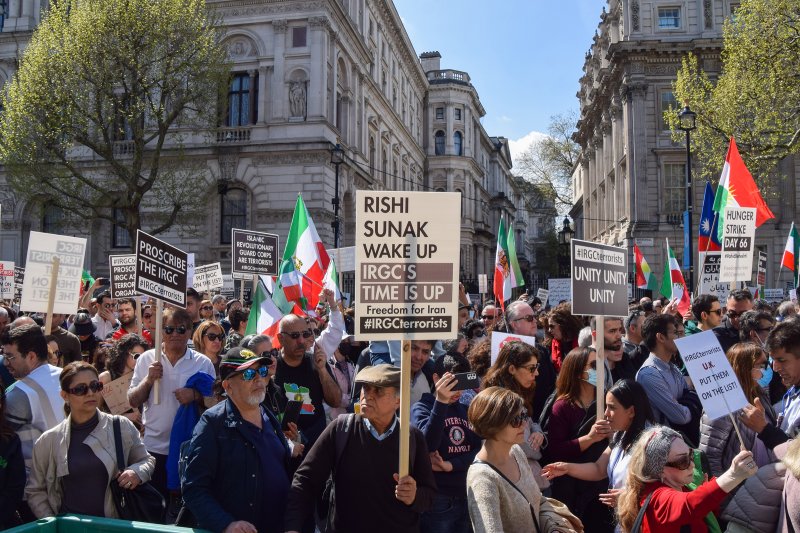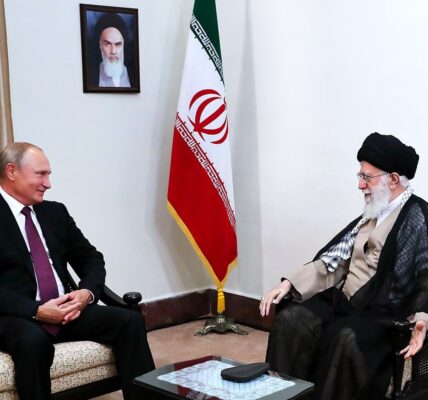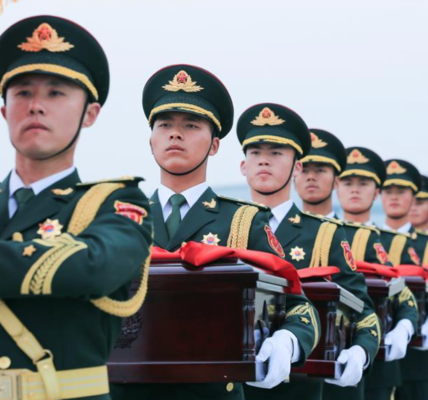Ken McCallum Chief of MI5, at a security summit in the U.S. on Tuesday, 17 October sounded the alarm on the potential for Iranian-backed terror attacks in Britain amid the Israel-Hamas war.
His remarks marked the first time Mr. McCallum had addressed the war and were made at a gathering attended by intelligence chiefs from the United States, Canada, Australia, and New Zealand.
MI5 Chief’s Warning
“The monstrous attacks on Israel raises concerns about an elevated risk of terror incidents in the UK, particularly in relation to the threat posed by Iran”, McCallum said.

“We have obviously been concerned about Iran’s behaviour in the UK for a long time,”
“In particular, the last 18 months or so have been a particularly intensive phase of Iran-generated threat on UK soil.
“Plainly, events in the Middle East sharpen the possibility that Iran might decide to move into new directions.
“I wouldn’t rule out the possibility that could include the UK, but we are already operating at a high level of Iran-generated threat.
“For the most part, the activity we’ve seen backed by Iran in the UK for the last 18 months or so has been targeted at the regime’s own internal enemies, dissidents, Farsi media organisations. Not exclusively, but predominantly.
“Clearly, one of the things on our minds is, might the Iranian targeting intent shift in response to events elsewhere.”
Iran’s campaign of intimidation has been by far the most noticeable development in the domestic threat landscape over the past year.
The fear now is whether Iran will seek to encourage radical groups or extremist activities within the UK as Israel’s ground assault of Gaza continues.
- Last November, Mr. McCallum confirmed Iran had been involved in a total of 10 plots to kidnap or kill British or UK-based individuals in that year to date.
- By February this year, the figure had risen to 15.
- No more recent information has been given surrounding this figure.
The Islamic Revolution Guard Corps (IRGC): Whitehall officials say that the IRGC of Iran, is collaborating very closely with terrorist groups like Hamas and Hezbollah and has established an extensive network of influence in the UK.
- This network is reportedly connected to over 10 mosques, groups, and educational institutions across the country.
The Foreign Office in July announced that the IRGC would not be designated a terrorist group. This decision was based partly on the belief that such a designation might lead to the expulsion of the British ambassador from Tehran, a move that could result in the loss of the UK’s remaining influence in Iran.

Earlier this month, Robin Simcox, the Home Office’s commissioner for countering extremism, criticised this decision arguing that the IRGC supports groups like Hamas, which is already designated as a terrorist group by the UK, and that it is “plotting acts of violence around the world.”
Hostile State Actors
Mr. McCallum also issued a warning to businesses emphasising the need to safeguard themselves against hackers amid a ‘sharp rise’ in aggressive actions carried out by hostile state actors.
“Across all five of our countries we are seeing a sharp rise in aggressive attempts by other states to steal competitive advantage,” McCallum said.
“This contest is particularly acute on emerging technologies. States which lead the way in areas like artificial intelligence, quantum computing and synthetic biology will have the power to shape all our futures”.
Highlighting the urgency of the situation, he called for heightened awareness and proactive responses to address these challenges before they become irreversible.
“We all need to be aware, and respond, before it’s too late,” he warned.
























































































































































































































































































